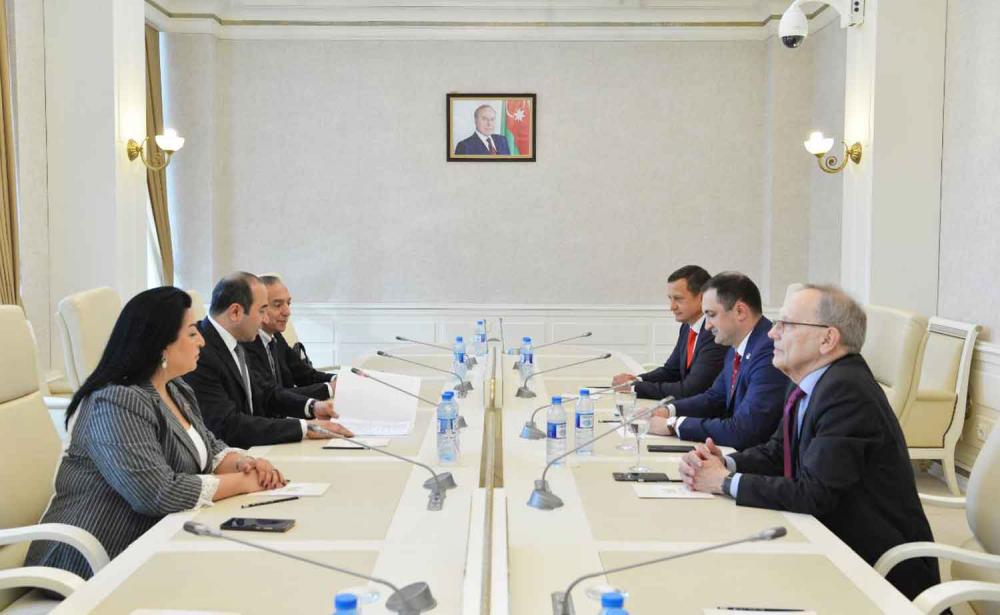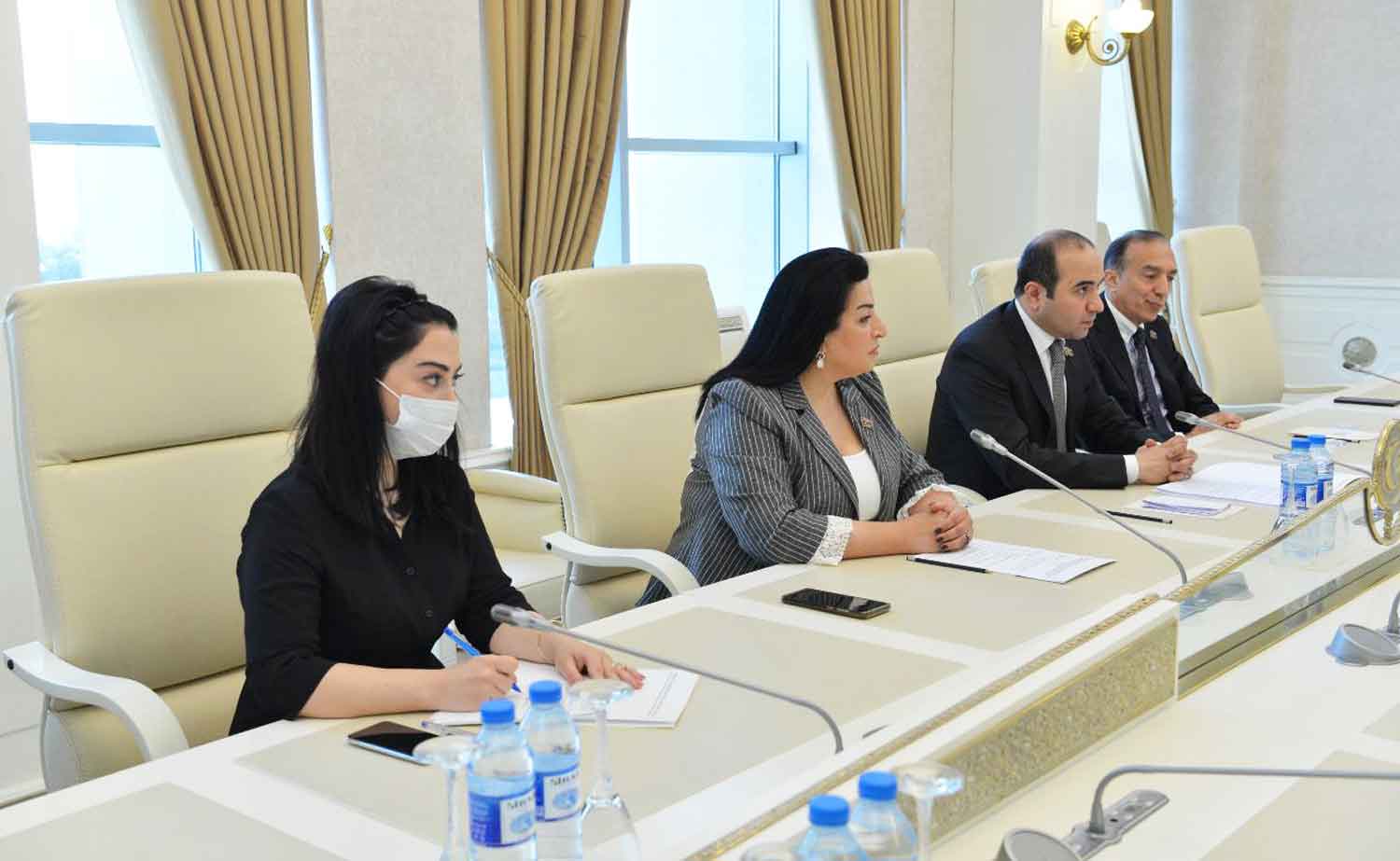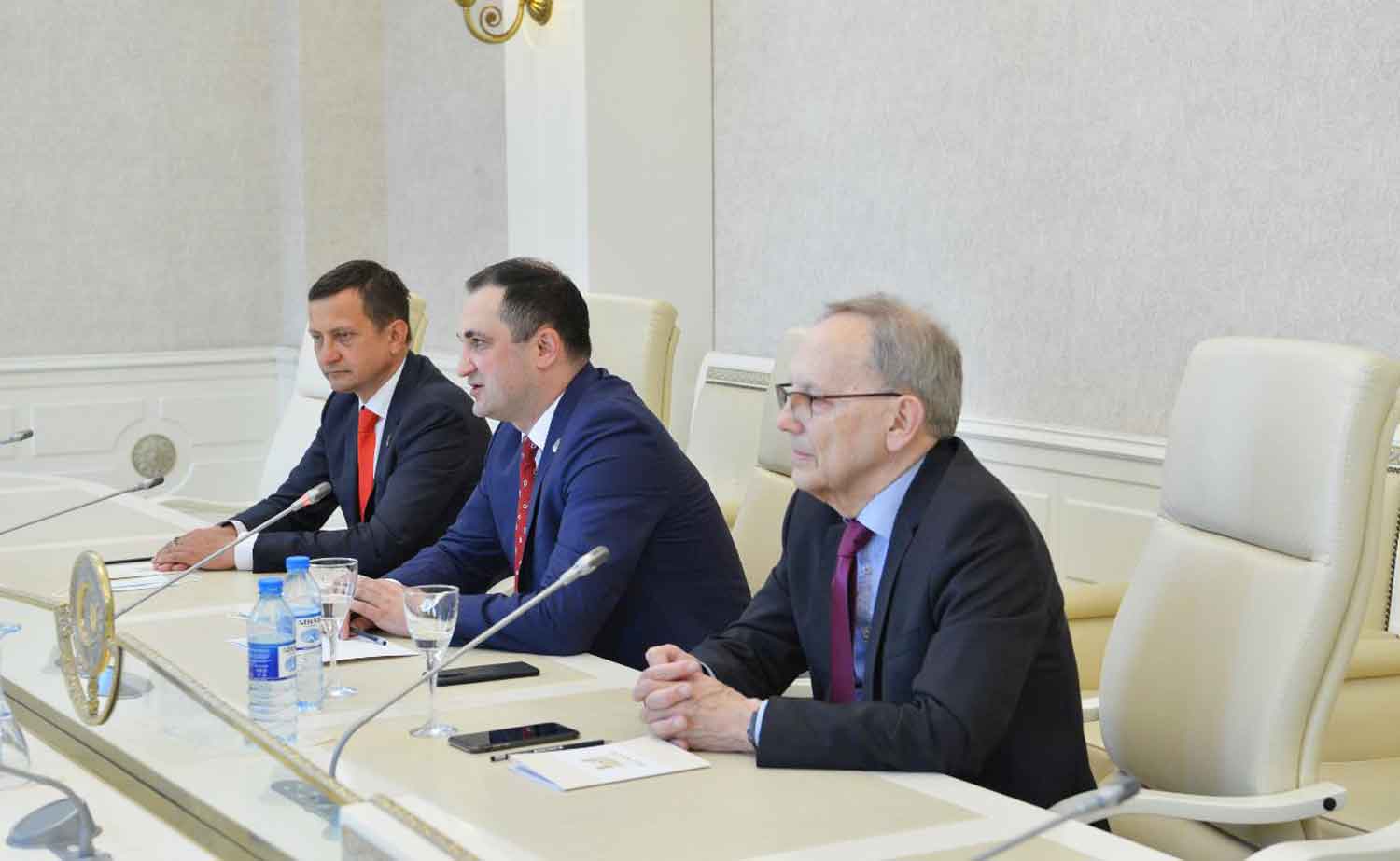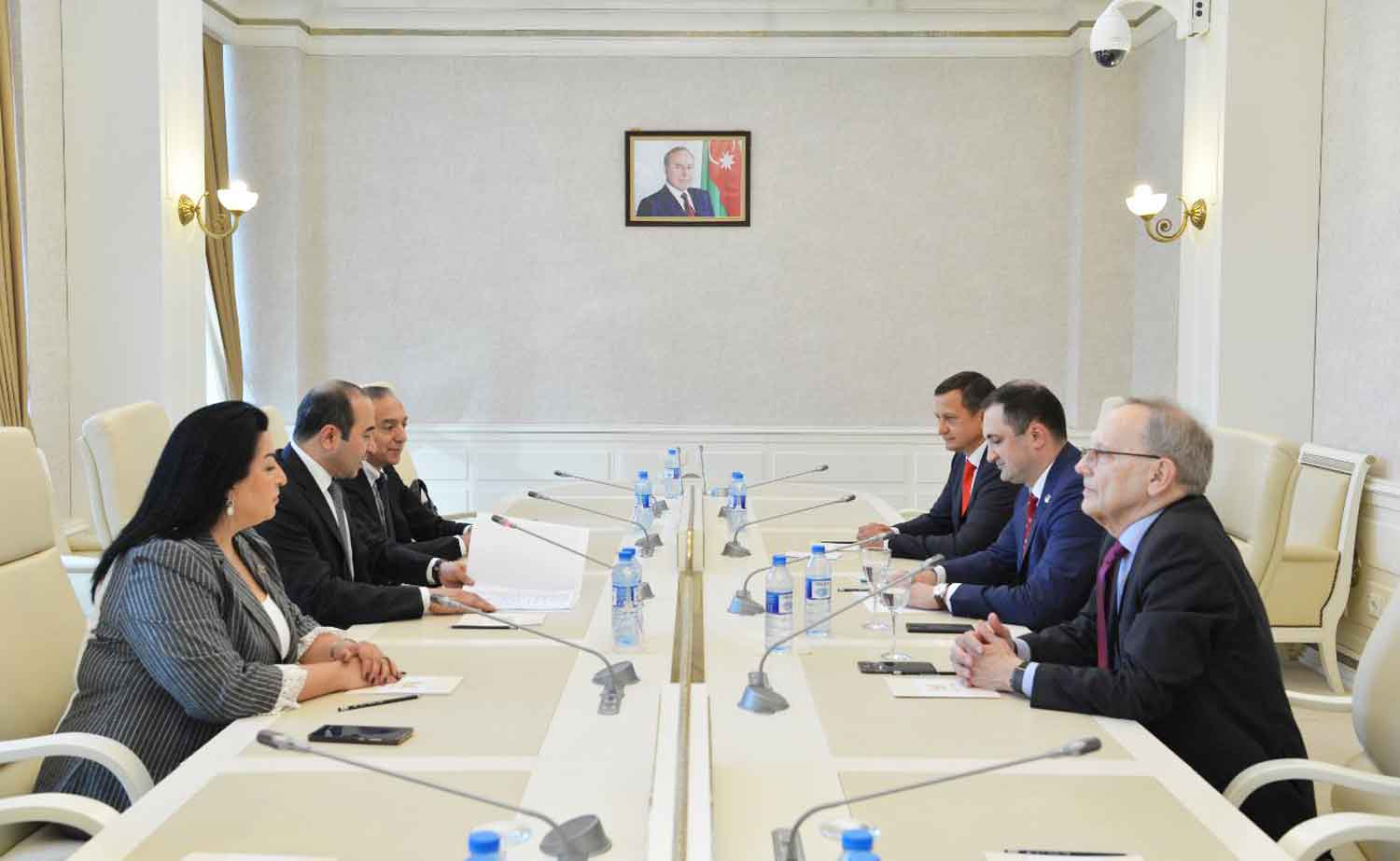At the Meeting of the Azerbaijani, Latvian Interparliamentary Friendship Groups

The interparliamentary friendship groups of Azerbaijan and Latvia met at the Milli Majlis on 8 June.
The leader of the Milli Majlis Working Group for interparliamentary connexions with Latvia Kamran Bayramov welcomed the guests before telling them of the significance of the bipartite co-operation, preservation of the mutual relations rooted in history and the part played in their progress by the state leaders’ reciprocal visits. Mr Bayramov also covered the contributions from the work done by the interstate commissions to the progress of the co-operation, and the present state as well as development prospects of the ties between the two legislatures.
The leader of the Latvian Sejm’s Group for the promotion of the co-operation with the Azerbaijani Parliament Romāns Naudiņš witnessed satisfaction with the trip to Azerbaijan, the land of his ancestors. Talking about the history of relations between Azerbaijan and Latvia subsequently, he pinpointed the similar traits of our nations. Mr Naudiņš underscored the co-operation potential to be tapped in such areas as humanitarian affairs, education and vocational training.
Armands Krause, the deputy of Mr Naudiņš, and a group member Alexandrs Kiršteins, too, talked about the expansion vectors of the bilateral bonds. Besides, they relayed the Latvian experience in forestation and soft landscaping, construction and wood processing.
MP Nizami Safarov of the Milli Majlis gave a thorough description, from the international legal viewpoint, of Armenia’s post-war refusal to let Azerbaijan have minefield maps and vain attempts at making the Armenian provocateurs apprehended in the Azerbaijani territory look as ‘prisoners of war’. He told the visitors from Latvia that such a destructive action course on Armenia’s part contradicted the international laws, the UN documents and the obligations that Armenia itself had assumed as a state. In so saying, Mr Safarov did not omit to put forth convincing argumentation and proofs underpinning his discourse.
MP Fatma Yildirim, in turn, narrated about the morbid display of the Armenian occupation’s consequences in the liberated lands, of the current restoration and rebuilding work and of relevant collaboration perspectives.
Other matters of shared interest and concern were brought up during the meeting as well.
The Press and Public Relations Department
The Milli Majlis






